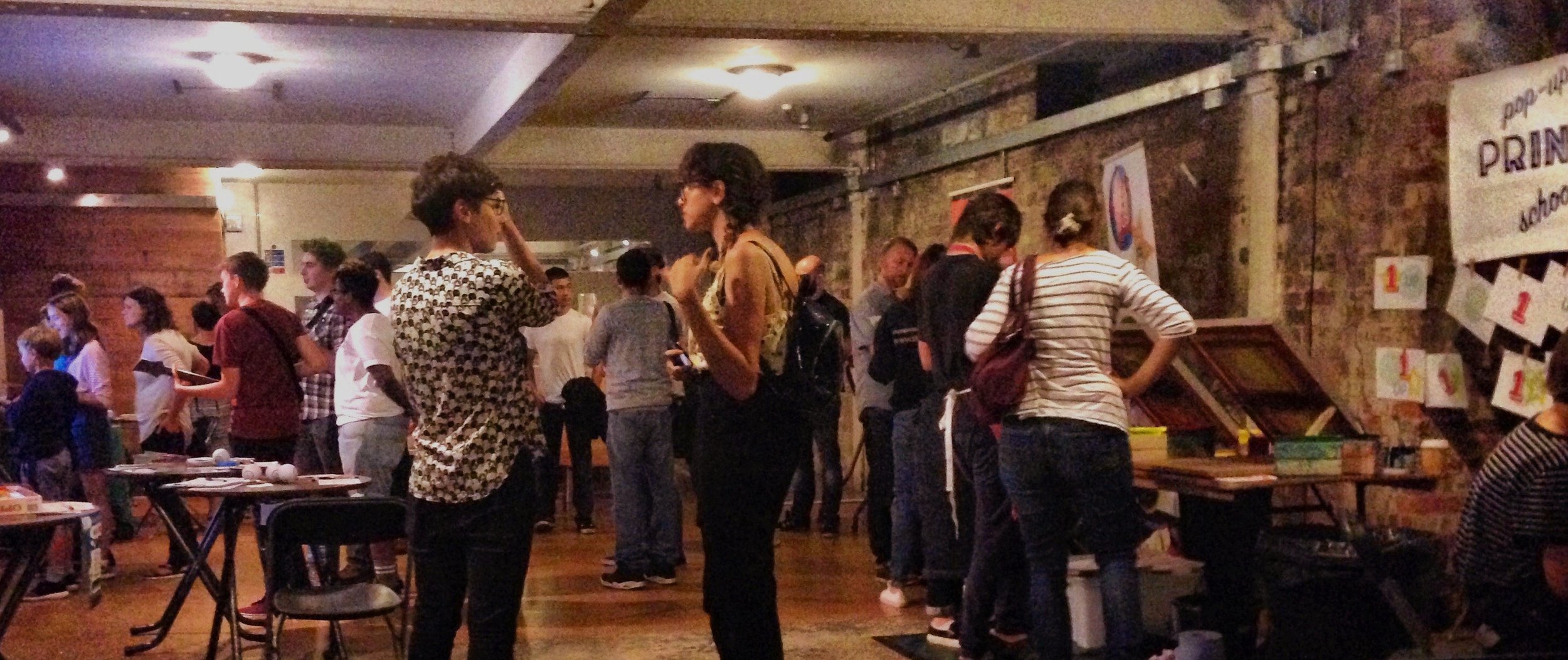Making music with Little Hoppers, an inclusive music group for under 5s

Find below blog from Anna Dolphin who has been delivering music sessions as part of Our Future City’s Early Years Music Programme.
As part of the Our Future City early years project I have been making music with the Little Hoppers group – an inclusive group designed for children with special educational needs and/or disabilities. In the sessions I aim to create an environment that encourages playful creativity where there is no pressure, so the children and adults are comfortable to participate and in their own way.
We make sounds with our voices, explore and improvise with instruments, sing and play instruments with familiar and new songs, make up new songs, create sensory experiences and jam together. It has also been a space for parents to support each other, and also just have fun together making music with each other and the children.
The group has been based at the South Portslade Children’s Centre at Portslade library. There has also been Bookstart packs from BookTrust (https://www.booktrust.org.uk/what-we-do/programmes-and-campaigns/bookstart/families/) available for the families which have been popular and many of the families have spent time in the library before and after the music group looking at and choosing books.
As families arrive in the room there is a gentle sounding music app Bloom playing and a few instruments out that the children and adults can explore and interact with. When the families are settled on the mats and beanbags we sing hello to each person, wave hello, and sing about different ways we can say hello guided by what the children are doing, for example ‘shake our shaker hello’, or ‘clap our hands hello’. We then sing ‘Who is in the forest?’ to see which animals are in the forest bag. Usually Harry the hedgehog puppet waves hello first and we sing a hedgehog song. Next the big bee buzzes out of the bag to say hello. The group are encouraged to buzz hello back as the bee travels around the group adults and children interact with the bee and make buzzing sounds. Then the little bee comes buzzing out of the forest bag. The little bee is quieter and we sing a song about the quiet bee and the loud bee. Some weeks the snake slithers out of the forest bag with a ssssssss. There could also be some ducks, frogs or other animals. The animal sounds are a fun way to encourage vocal sound making, and we get a vocal warm up as well. Adults and children have interacted playfully, and some of the children have enjoyed interacting with the animals, anticipating the animal sound and leading and conducting the different sounds through playing with the animal toys. Some of the children also like to choose an animal from the bag and sing a familiar song related to that animal.
We have included a favourite song for each child in the session. As well as some of the early year’s classics like Wind the Bobbin Up and Wheels on the Bus, favourite songs have also included The Beatles and Oasis.
The various instruments have been popular, particularly the ukuleles, chime bars, drums, tubs now reused as drums and iPads. Children, parents and carers jam together exploring the different sounds and ways to play the instruments, different dynamics, changes in rhythm, turn taking, stopping and starting. We then sing a song about the different ways each child is playing the instruments as others in the group copy this way to play. The children have led the music making with call and response, following, mirroring and conducting. With playful sound making and musical conversations using instruments and voice, it is great to see the children delight as others copy and respond to their playing and direction, and see child and parent interact, communicate and respond to each other through the music and sound making. Some families have said that they have increased their confidence to do more music making at home and parents have fed back that they will be more interactive with their music activities and “include my child’s sounds and actions and repeat them back” in their music making at home.










Anna Dolphin